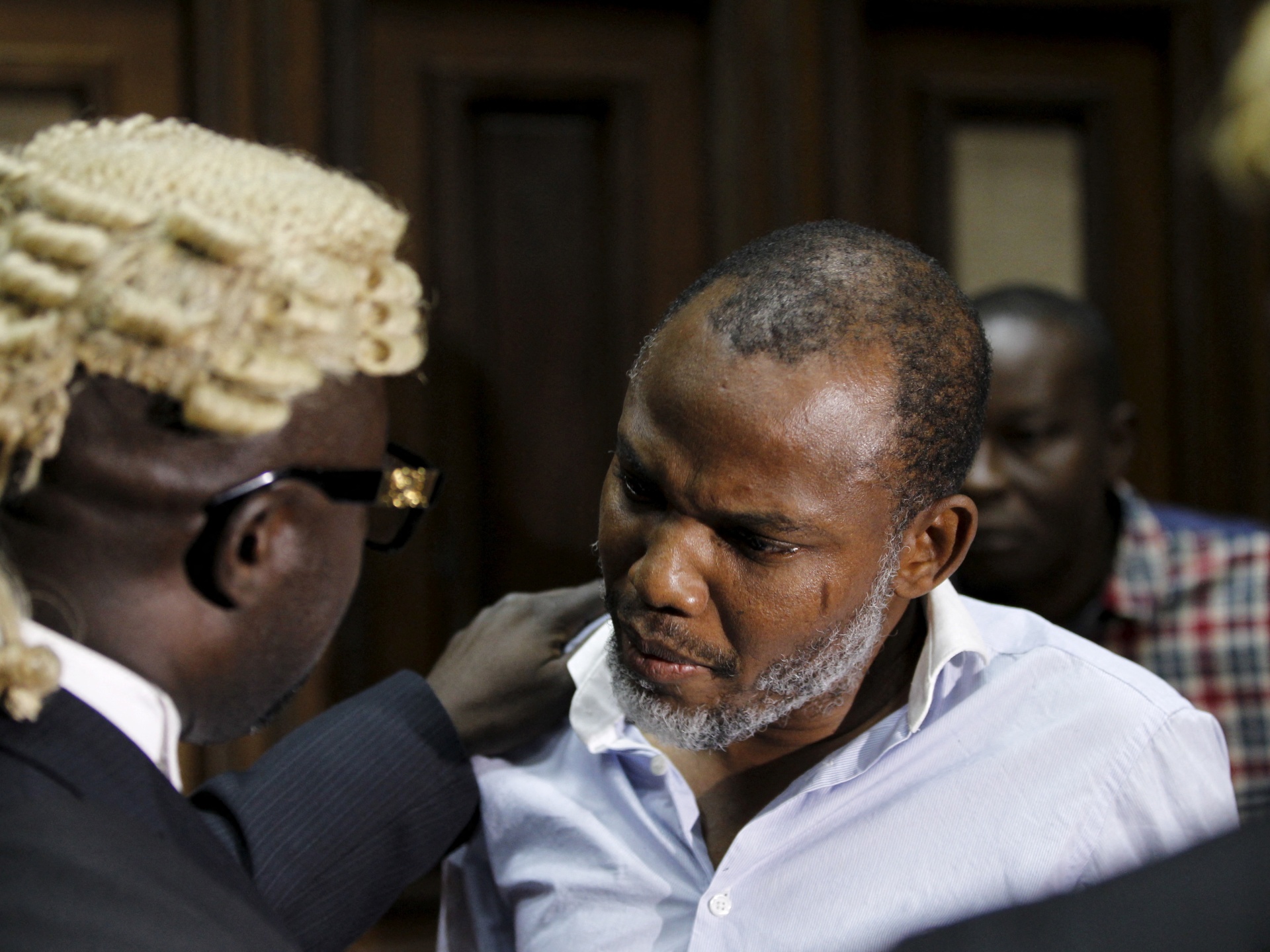The decision to drop the charges was a unanimous one by the three judges at the Nigerian appellate court.
Nigeria’s Court of Appeal has dropped terrorism charges brought by the government against separatist leader Nnamdi Kanu in a unanimous decision by all three judges hearing the case.
On Thursday, the lead judge dismissed a seven-count charge of terrorism against Kanu and discharged him, saying a lower court had no jurisdiction to try the case and that Kanu was abducted and extraordinarily extradited to Nigeria.
The two other judges concurred with the ruling.
Kanu was not in the courtroom.
“In view of the fact that the trial court lacks jurisdiction to hear this case because the process of extradition of the appellant from Kenya to Nigeria was unlawful since due process was not followed, this appeal succeeds,” the lead judge, Justice Oludotun Adefope Okojie, said.
“Consequently, the appellant is therefore discharged,” she said.
In April, Nigeria’s High Court ruled that Kanu should stand trial.
He leads the Indigenous People of Biafra (IPOB), which campaigns for the secession of southeastern Nigeria where the majority are of Igbo ethnicity.
Nigerian authorities have labelled IPOB a ‘terrorist’ organisation.
A spokesperson for Nigeria’s attorney general said the government was considering its legal options following Thursday’s ruling but said the charges Kanu faced before he disappeared while on bail in April 2017 “remain valid issues for judicial determination”.
Kanu had denied the charges of terrorism and knowingly broadcasting falsehoods, which are linked to social media posts he issued between 2018 and last year.
His lawyers argued that he could not receive a fair trial because he was forcefully extradited from Kenya to Nigeria. Kenya has declined to say if it played a role in Kanu’s return.
An attempt by Igbo separatists to secede as the Republic of Biafra in 1967 — the year that Kanu was born — triggered a three-year civil war that killed more than one million people.
Since Kanu’s trials began in Abuja, IPOB has ordered residents of the southeast to “sit-at-home”, a form of civil disobedience to show solidarity with Kanu.
The IPOB campaign has crippled small businesses and routinely disrupted other economic activity in the five states of the region.
